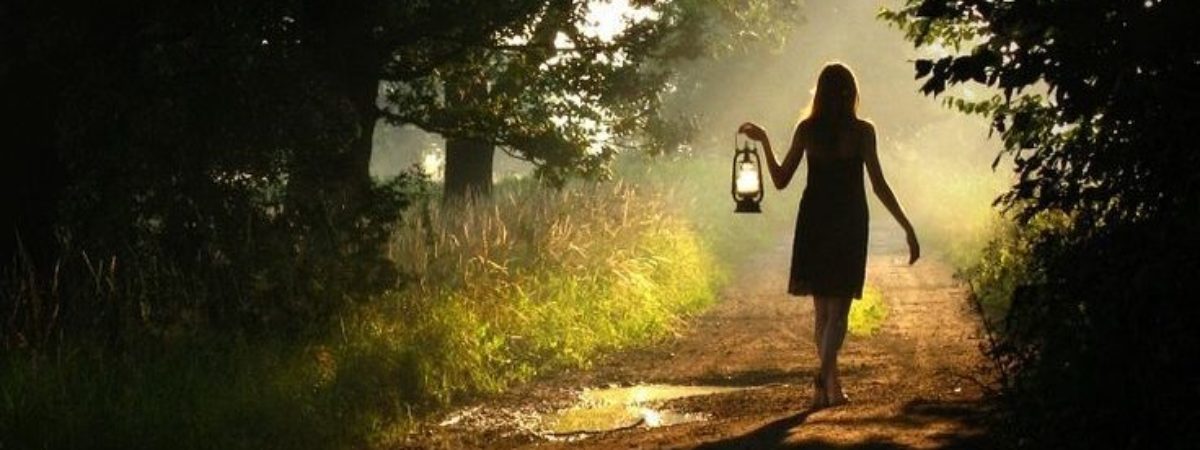Don’t ask me why I did it. I was in college. It was only for six months and I needed the money. My intent was to shift my career from writing to psychology. And a deeper part of me really did want to be of service. So at that time, it seemed a good idea to become a houseparent for 12 chronically mentally ill adults. That experience was one of the most challenging — and growth-filled — of my life.
*******
 Charlie sat at the dinner table with the other 11 — the apostles of “things not quite right” — as I put out the bowls of vegetables and salad, the plate of chicken. He reached for the bread and stuffed two slices down the front of his shirt.
Charlie sat at the dinner table with the other 11 — the apostles of “things not quite right” — as I put out the bowls of vegetables and salad, the plate of chicken. He reached for the bread and stuffed two slices down the front of his shirt.
“Charlie, there’s plenty of bread. You can have more if you want,” I said.
“No, that’s OK. I need these.”
I learned not to argue. Charlie had just been released from a lifetime of institutionalization and was now in this group home. In his mind, grab what you could now or there wouldn’t be any at all.
Carla started babbling in her German accent about the year 1945, and how on this particular day, she had been taken to the park by her mother, but it had rained. She was a savant and had the most uncanny ability to recall what had happened in detail on any given date or year.
The rest just chowed down, even as I tried to teach them to use the correct utensils and a napkin. Again, fruitless. They did the best they could given their challenges and backgrounds.
Often, in the middle of the night, Rita would pull the fire alarm, just for kicks. She liked the attention and excitement and even better, the firemen rushing to the stately three-story mansion, now converted into this group home. I think we eventually installed some kind of device that made the alarms accessible only to those in charge. But I don’t remember.
I do recall Mary, though, who would knock on my door in the middle of the night. She was an infantilized adult woman, who wore gobs of lipstick and makeup, drowning in jewelry around her neck and wrists, and always had questions for me about sex. I would tell her to go back to bed, that we’d talk in the morning and she would meekly walk away. Perhaps she just wanted to know I was there. To protect her.
Why do I share these stories? Because for whatever reasons, I’ve been thinking about the people I was serving — and the rest of us — and asking myself: Is there “really” a rest of us? Yes, they had unusual behaviors and mental challenges to the extreme. Some were heavily medicated. Others had spent lifetimes being shuttled from psychiatric hospitals to institutions.
But Charlie, like most of us, just wanted to know he would have enough. He lived in a world of scarcity and so often aren’t we caught up in the same? Will there be enough money, food, time, health? Fill in the blank. Like Charlie, many of us reach out in fear and lack when abundance is right in front of us.
Carla had an uncanny gift to tap into a dimension that seemed to have no time. And if we live in the present moment, indeed there is no time. Rita simply wanted attention. Granted, she took it to drastic measures, but who of us in our lifetime hasn’t pulled some “stunt” to get what we felt we needed? And Mary simply wanted reassurance that the “little girl” in her was safe.
I believe we all carry parts within us that we often would rather not acknowledge. That we would like to push away. We would rather not see what we call the “crazy” in us because that would be all together too unacceptable. But the truth is, we are a combination of many graces and blessings as well as curses and flaws.
And even that word “crazy” is a misnomer because who is to say what is sane and what isn’t? How can we say what is “whole” or “holy” and what is not?
Yes, the individuals in that group home were flawed — at least according to the  psychiatric world — but aren’t we all flawed in some way? We all come to the table of life with our struggles and challenges, some with more severity than others.
psychiatric world — but aren’t we all flawed in some way? We all come to the table of life with our struggles and challenges, some with more severity than others.
In hindsight, I am thankful to those with mental difficulties at the group home because they became my teachers. They revealed to me an honesty of spirit in their mental and emotional challenges, one that was authentic, painful and struggling.
And they came to show me that the Divine is always saying “yes” to us with great love — over and over and over again — no matter our limitations. No matter if we are scrounging for a piece of bread or setting off a fire alarm. Or simply trying to get through another day.
This, for me, is cause for great rejoicing. And great hope.
